21. A Chinese Odyssey Part One: Pandora’s Box (Jeffrey Lau, 1995)

Loosely based on the Chinese epic novel “Journey to the West”, “A Chinese Odyssey” tells the story of the Monkey King, whose master, the Longevity Monk, has been banished to human form until he learns the meaning of life. Five hundred years later, the Monkey King is reincarnated as Joker, leader of a band of robbers known as the Axe Gang, whose crumbled headquarters lies in the desert.
Eventually, two deadly sisters arrive in search for the Monkey King, but they only encounter Joker, who poses as him to win the love of the second sister, Jing Jing. However, King Bull appears seeking revenge from the Monkey King but ends up killing Jing Jing. Joker’s only hope to save her is to obtain Pandora’s Box.
Stephen Chow plays Joker in one of the funniest movies in his filmography that additionally provided him with a chance to demonstrate both his comedic and overall acting abilities, through the elaborate direction of Jeffrey Lau and the spot-on script.
Furthermore, the film entails stunning visuals, especially in the night scenes, magnificent battles, and hilarious slapstick humor. Lastly, Ng Man Tat as Assistant Master and Karen Mok as Jing Jing accompany Stephen Chow wonderfully in an overall great cast.
22. Comrades: Almost a Love Story (Peter Chan, 1996)

Xiaojun is a naive country bumpkin who arrives in Hong Kong to earn money to marry his girlfriend, Xiaoting. While there, he meets Li Qiao, a woman who is also from the mainland but has adapted to city life and works at a McDonald’s. She introduces him to the ways of the city, which include speaking English, and a peculiar relationship forms between the two. Eventually, on New Year’s Eve they become lovers, but they dismiss the fact as an outcome of their loneliness. The matter, however, is not so simple.
Peter Chan based his film on the acting of his two protagonists, Maggie Cheung and Leon Lai, and they delivered in wonderful fashion, particularly the first, who sublimely portrays a combination of innocence and ambition in a minimalistic and abstract way.
Although the story is simple and usual, Chan’s stylish direction and great writing by Ivy Ho, who created a story that spans 10 years and reaches two continents, resulted in an excellent outcome that won nine categories at the 1997 Hong Film Awards.
23. Made in Hong Kong (Fruit Chan, 1997)

This overwhelmingly low-budget production is considered one of Hong Kong’s first indie films, and its success, both locally and internationally, raised Fruit Chan’s and Sam Lee’s status to stardom.
Shot on handheld cameras and with a minuscule budget of US $80,000, “Made in Hong Kong” tells the story of Moon, a teenager from a housing estate, whose life takes a turn for the worse when he acquires two letters left behind from a schoolgirl who committed suicide. Subsequently, his mother abandons him, his handicapped best friend gets into trouble, and he falls in love with a girl who suffers from a serious illness.
Fruit Chan wrote and directed this astonishing drama about teenage alienation that depicted the unseen side of Hong Kong, with the housing estates, the broken families, and the role triads play in that environment. The film’s main characteristics are honesty and nihilism, which are depicted in a way that ends up as pure lyricism.
Furthermore, Fruit Chan took the most out of his actors, with some of them being non-actors hired on the street, and Sam Lee as Moon gives a truly memorable performance.
24. The Mission (Johnnie To, 1999)
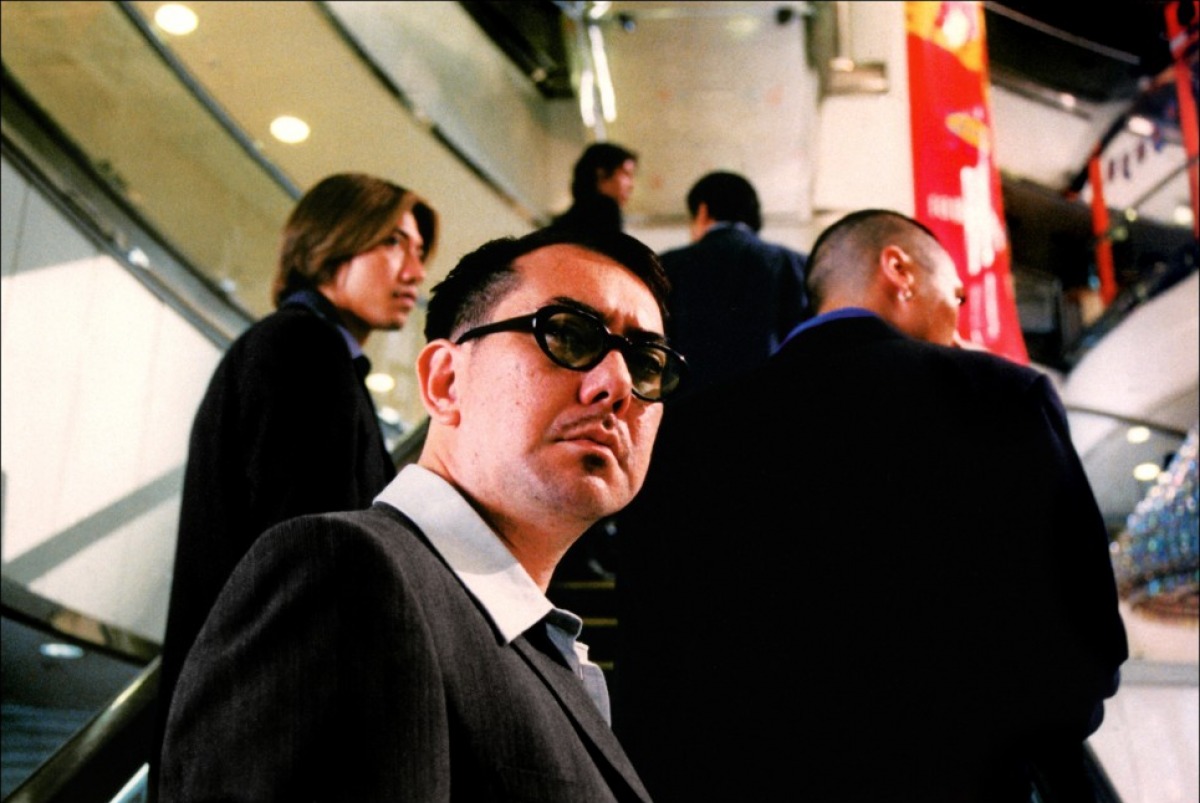
Curtis is a professional bodyguard who is hired along with four others to protect triad boss Lung, who is trying to become legitimate and is targeted for assassination. Their mission is simple: protect the boss until the assassins are revealed.
Johnnie To directs a film about loyalty, honor and professionalism that appears simple due to the scarce dialogue. However, To has invested in subtle notions like wordless looks, which actually hide intricate subplots that are hard to discern with the first look.
The action scenes are once more elaborate, with the one with the sniper and the one in the mall being utterly spectacular.
Furthermore, “The Mission” entailed a wonderful cast, including Anthony Wong, Simon Yam and Francis Ng, all of whom portray their characters in an artful fashion.
25. In the Mood for Love (Wong Kar Wai, 2000)
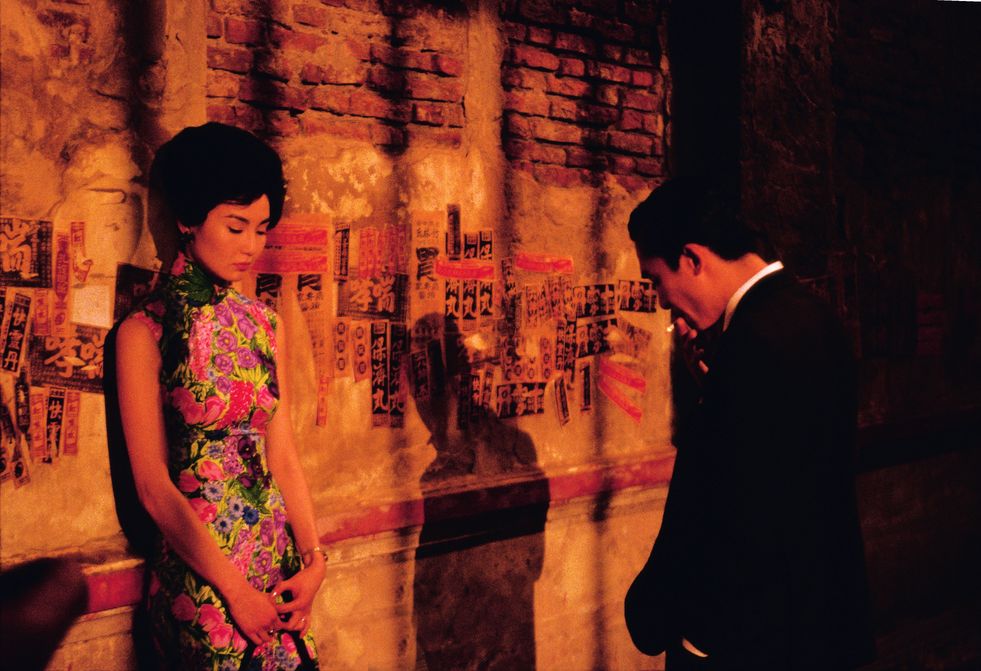
In 1962 Hong Kong, in a building with rented rooms, Chow and his neighbor Su discover that their spouses, who are frequently absent supposedly due to professional reasons, are having an affair with each other. This particular discovery brings them very close as they try to understand what drove their significant others to adultery, to the disapproval of the conservative society of the time.
Wong Kar Wai directs a movie about two lonely individuals who experience isolation inside their marriage. Their answer toward their discovery is to attempt the same, in a nonconforming and cruel effort at reenactment. Although they have sworn not to be led to the same situation, they are both wounded and feel the need to console each other. However, everything seems to be against them; the gossip and reprimands from their proprietor, and even their own selves as they seem to be drowning in guilt.
Wong focuses almost exclusively on his two protagonists, with the rest of the characters being just shadows. Tony Leung is sublime in his laconic role, which also drew from his physical appearance as he portrayed an attractive, mysterious and silent individual. Maggie Cheung plays a woman who cannot admit her feelings and pressures herself to hide them into her heart. Wong Kar Wai drew also from her appearance, with Cheung looking elegant and overall gorgeous in her Mandarin dresses.
Both the acting and the elaborate direction result in a true recital of artistry and finesse.
26. Infernal Affairs (Wai Keung Lau, 2002)

One of the best action thrillers ever shot, “Infernal Affairs” weaves an intricate web around two opposing moles and their struggle to achieve their goals while keeping their identity hidden. Chen Yin Wang has been chosen from his days in the police academy to infiltrate the crime world, particularly the gang of the notorious Sam. The sole individual who knows his actual identity is Chief Wong. On the opposite hand, Sam has done the same with detective Lau Kin Ming. Eventually, the two moles have to face each other.
Lau directs a film where agony is omnipresent, a tactic that finds its apogee in scenes like the one involving Sam’s first meeting with the Thais, which soars with suspense. The fact that the two protagonists have to appear constantly as the opposite of what they really are, gave a new meaning to the whole good versus evil concept, and make for a true masterpiece along with the constant plot twists and the elaborately shot action scenes.
Moreover, the film incorporates the crème de la crème of Hong Kong action cinema, including Tony Leung, Andy Law, Anthony Wong and Eric Tsang, in a movie that won a plethora of awards, and spawned two sequels and an American remake that won the Oscar for Best Picture.
27. 2046 (Wong Kar Wai, 2004)

Journalist Chow Mo Wan writes a novel titled “2046”, the year when the passengers of an unusual train travel in search of their lost memories. It is a story that uses the future as the point of return to Chow’s past, one he cannot leave behind, and ends up as a trip where each stop represents a woman in his life. In an evident connection with “In the Mood for Love”, his biggest love was named Su Li Zhen, in a relationship that never actually materialized. The trip on the train is actually a search for this woman.
“2046” is a gorgeous film, a fact stressed by the physical presence of its protagonists, Tony Leung, Ziyi Zhang, Gong Li and Maggie Cheung. The first one has the most demanding role, presenting a character whose sarcastic attitude, bleak manners and devious smile appear only to hide his weaknesses and his perpetual lack of fulfillment.
Furthermore, “2046” stands apart due to its ingenious cinematography, with the film being shot almost exclusively in interior spaces, a tactic used to clearly depict the entrapment of the protagonists inside their own emotional world.
28. Kung Fu Hustle (Stephen Chow, 2004)
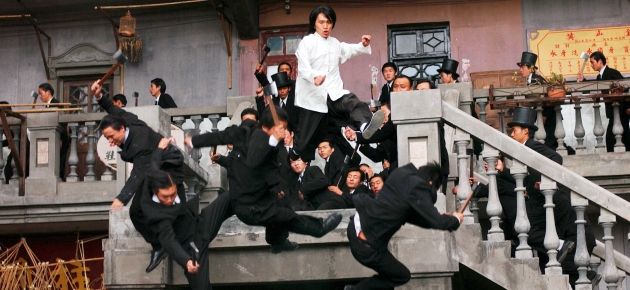
In 1940s Shanghai, gangs fight for domination of the city and the one who eventually triumphs is the Axe Gang, which consists of gangsters in suits using axes as weapons. Due to violent incidents occurring all over Shanghai, the only places the rest of the citizens can live in peace and quiet are the slums. One of those is called Pig Sty and is ruled by a married couple named Landlord and Landlady, respectively. One day, two minor crooks, Sing and Bowe, appear in the slum and all hell breaks loose.
A hilarious film in extreme slapstick fashion, “Kung Fu Hustle” parodies a number of films including “The Matrix” and “The Blues Brothers”, but mainly classic Hong Kong kung fu films. In that fashion, all the clichés of those movies are present and mocked here, including techniques learned by secret manuals, martial arts masters with different styles, beggars-teachers of kung fu, flying fighters, and more.
Moreover, the characters act and move like cartoons, another element that adds to the comedy, and is particularly evident in a scene where the Landlady is chasing Sing.
Lastly, the film includes in its cast, apart from Stephen Chow himself, a number of veteran actors and directors of the kung fu genre, such as Xiaogang Feng, Wah Yuen and Siu Lung Leung.
29. Election (Johnnie To, 2005)
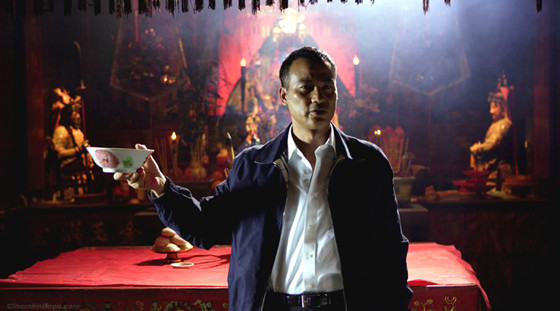
Hong Kong’s “underground” is in turmoil, since the Wo Shing Triad is having an election for its new boss. The opponents are the calm and patient Lok, and the bordering on paranoia Big D. The elders give their vote of confidence to the former, but Big D does not take their decision without a grumble, especially since Lok has yet to find the symbolic scepter that marks the leader, which is hidden somewhere in China.
Johnnie To directs a sublime gangster film that showcases all the distinct characteristics of the genre, including hard-boiled gangsters, ancient codes of honor, bloodbaths, a scarce female presence, and total lack of atonement. Moreover, he included some comic elements, such as the scene where two gangsters fight, but they stop as soon as their mobile phones ring and they learn they work for the same boss.
Simon Yam as Lok and Tony Leung Ka Fai as Big D are great in their roles, in a film that netted Best Picture, Director, Screenplay and Actor Awards (Tony Leung) from the Hong Kong Film Awards, and was nominated for a Palme d’Or at the Cannes Film Festival.
30. Ip Man (Wilson Yip, 2008)
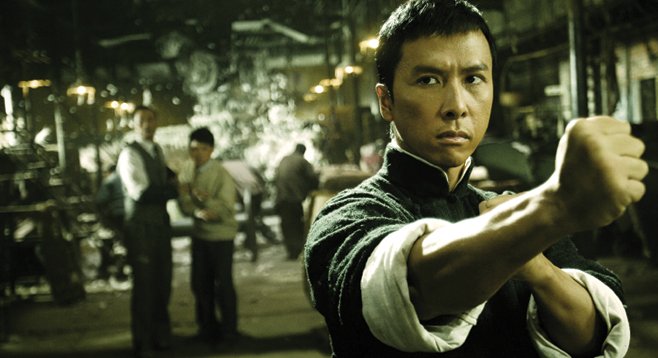
The first film to depict the life of the titular character, who was Bruce Lee’s teacher and the one who introduced Wing Chun style to the world, is probably the best among the plethora of titles with the same subject.
The story takes place in Foshan, a city in China that was considered a centre of martial arts. Ip Man is a modest aristocrat, who enjoys the fame of being the strongest fighter, a fact proven in a number of battles. When an outsider named Jin Shao Zhao arrives to the city to challenge the martial arts masters, Ip Man seems to be the only one who can stop him.
Unfortunately for the people in Foshan, awhile later the Japanese invade China and the living conditions of people in Foshan deteriorate rapidly. Ip Man has now to face the hunger, the struggles of the residents who turn to him for protection, and a Japanese general who wants to challenge him in a fight.
Although not historically accurate, the film stands apart for its impressive depiction of the two eras and a number of sublime action scenes choreographed by two masters of the field, Sammo Hung and Tony Leung Siu Hung.
Donnie Yen, one of the most impressive action actors in the world, plays Ip Man, and Fan Siu Wong and Horiyiki Ikeuchi play his two main opponents. The battles between the aforementioned are exceptional.
Author Bio: Panos Kotzathanasis is a film critic who focuses on the cinema of East Asia. He enjoys films from all genres, although he is a big fan of exploitation. You can follow him on Facebook or Twitter.